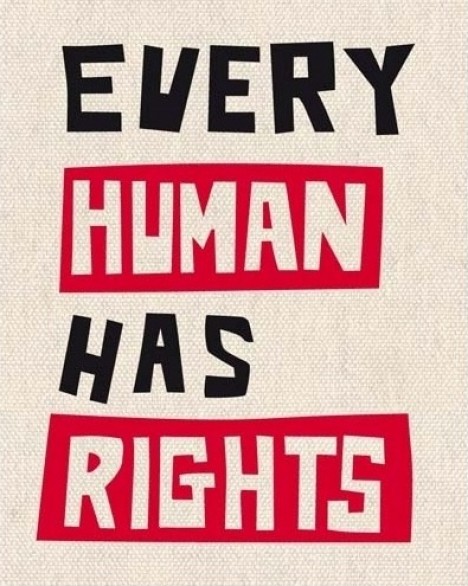Chad Griffin, partner at Griffin:Schake, was just named one of the Top 20 People of The Year by the Advocate.

Chad Griffin, the Advocate's Top 20 for 2008
He's in good company. He shares that title this year with the Obamas, Al Gore and Tina Fey to name a few and he's the only person culled from California. Griffin's company, partnered with Kristina Schake, operates at the apex of politics and entertainment and counts First Lady Maria Shriver's Women's Conference and Live Earth as two of their accounts.
Griffin was 19 years old when he first went to work on Capitol Hill under President Clinton's press secretary Dee Dee Meyers. This Hope, Arkansas native has since crafted a career out of his "campaign style approach to communication."
Paige Donner: Tell us about your campaign-style approach to communication.
Chad Griffin: "I'm a product of campaigns. I started with Clinton's first campaign, '91-92. That's what I know. So when we do a project, whether it's a philanthropic issue for a client or it's a major global campaign like Live Earth we approach it as a campaign. With a campaign you have a specific goal with a set date when you win or lose.
"That's how we try to structure everything we do. What are the clients' goals and what do we have to do between now and that date to accomplish those goals? So whether it's an individual in the entertainment industry who cares about a particular issue and wants to accomplish something... early childhood education, renewable energy, stem cell research, or gay marriage... that's the way we approach it."
PD: Can you draw comparisons with how you think this new White House will be with the one you worked in when you were first hired as the youngest guy in the West Wing?
CG: "Working in the White House is an opportunity of a lifetime. I was someone who'd only walked by the White House. I'd never even been on a tour of the White House and my first day was inauguration day in the West Wing. I'll never forget, each footstep from walking into the gates to walking into the West Wing to sitting down at a desk to seeing the Oval Office and to seeing the moving trucks on each side. One side I was seeing Bush's stuff moving out and on the other side, Clinton's stuff moving in. Bush's desk was by the door of the Oval Office headed out and Clinton's desk was on the outside portico waiting to be moved in. So it's a literal transition.
"It was an opportunity of a lifetime. The Obama campaign -- the energy and the enthusiasm -- of young people in this country was something unlike, perhaps, what we've seen in our lifetimes. I hope that the Obama administration is going to give young people a lot of opportunities. You definitely want the experience and you want those who are knowledgeable and who have been there before but I think it's also great to have the new energy and those people who volunteered on the campaign, and either took off from college or who took off work and worked night jobs to pay the bills in order to work on the campaign. And I think it's important to give those people the opportunity to work in the administration whether it's in The White House or in the Cabinet Agencies.
"With the hours that one has to work in The White House -- you're there at 6:30, you leave at whatever time work finishes, 9, 10, 11, 12 at night and usually it's seven days a week. So it's actually easier for a young person who's not yet settled with a family, etc. It was an amazing opportunity and I hope that President-elect Obama is going to give some young people the amazing opportunity I had at such an early age that President Clinton gave me."
PD: Words of advice to any young White House staffers?
CG: "Put your head down and work harder than you've worked in your entire life. You work so hard that sometimes you forget to pause and appreciate each day. While you're in the most powerful house in the world, and the things that Pres. Clinton was doing then and what Obama's going to do is really changing history and changing the course of this country. To be a part of that in any way... give it your all, be willing to work 24/7 and really commit yourself to it. And it's important to stop and pause and remember that you are right there witnessing and being a part of history."
PD: Do you recall a difficult moment in the West Wing?
CG: "I remember on my first day, I was 19 and I was in the West Wing Press Office and the phone rang and it was a NY Times reporter -- this was actually the day of the inauguration -- and they asked for DeeDee Meyers who was my boss and the President's press secretary and wanted a comment on some World Health issue. And I said, which was the truth, my mistake, 'Unfortunately right now no one's available for comment because people are still moving into their offices and we don't even know what our own phone numbers are.' And so, this particular reporter, in the next day's issue of the NY Times, which was the inauguration issue, says in the big article on world health, 'White House spokesperson Chad Griffin said no one was available due to the fact they were still moving into their offices.' Luckily I learned my lesson on day one, so I didn't make such mistakes again. But it's something I'll never forget my entire career.
"In retrospect I would have said, any time you're talking to a reporter, you're on the record and I should've just taken a message and had someone return the call. It was a lesson at 19 and I don't think I've made such a mistake with reporters again."
PD: Explain to the person who voted Yes on Prop. 8 why you feel they should have voted No.
CG: "Sure. For people who have never really faced this issue personally it can be a challenging issue and particularly if you're part of an association or a religion like someone in the Mormon Church who will tell you that it's your religious duty to vote one way or the other. I understand those people who face such conflict but I think at the end of the day those people who voted yes... there's a lot of misinformation out there.
"There was a lot of scare tactics used by the Yes campaign and I think those scare tactics worked with some people.
"I think a lot of lessons were learned by the No campaign. I just think, look, what this loss means is that we have a lot of work to do. It also told us that we will win. We were damn close. We lost by half a million votes. What it says to me is we're going to win. The question is, When? I think people are paying attention more, now, after we've lost than they were paying attention during the election. And I think that this issue, because of losing, is going to stay in the news and I think there's going to be real live stories told and real live impacts are going to be seen by Californians over the course of the coming months. I fully believe, that if this has to go to the ballot again, we'll fully see victory at the next go-round. For those people we lost this time or didn't vote, it just means we have more work to do. We have to work harder for them to hear our message."
PD: What are the issues that you have aligned yourself with?
CG: "Equal rights. Anything that falls into equal rights, such as gay marriage, is a personal and professional passion of mine. That's number one. Renewable and environmental issues. We've worked on most of the initiatives around the country where the public has voted on renewable energy. We've won most of them. We lost Prop. 87 which is the one where the oil companies spent $100 million against us. Stem cell research, health care, The California Endowment... so those are all issues that I care about personally and I'm lucky enough to be able to work on professionally. We are a for-profit business, but we're very lucky that we're a for-profit business with a social mission and we never take on issues that we disagree with.
"There are a lot of feelings about the Prop. 8 campaign and what went wrong and I would agree with most all the critiques about the campaign. We were brought in at the very end when the campaign was losing. We were brought in with a new team to turn things around. You always learn more in a campaign that you lose than in a campaign that you win. And there were a lot of lessons learned from the beginning all the way to the end."
PD: How does it feel to be designated by the Advocate as one of this year's Top 20 People?
CG: "I'm not very good at talking about myself. I prefer to promote and talk about my clients and projects but it's an honor. This is an issue that is truthfully the civil rights issue of my time.
"I'll be just fine in life if I'm not able to get married. I live in a great city, I have great friends and family and my life is fine. What we have to remember on these issues is that there are teenagers across this great country who commit suicide every day because of who they are.
"I maintain that that is because, until they are seen as equal citizens, and as long as they're seen as second-class citizens by their state governments by their federal government and discriminated against, when you're seen as second-class citizens, that does something to you. There's a reason that the suicide rate of gay and lesbian teenagers is five times that of their straight peers. Discrimination has a real life price and a real life effect. We learned a long time ago that separate but equal is not equal. We can't stand for such discrimination in this country or in this state. I'm humbled by the fact the Advocate would choose me. There are a lot of people I could point to who contributed greatly to this issue but I'm honored. It's a tremendous group of 20 to be associated with."

